Tips on supporting someone who self-harms
If your friend or partner is self-harming, it can be hard to know what to do. Our information is here to help you.
This page has tips and ideas on how to talk to them about it, how to support them, and how to look after yourself.
Some of our tips might work better for you than others, or some might feel really difficult right now. Remember to be kind to yourself and only try things that you feel comfortable with.
Don't make assumptions – there's a bunch of reasons why people might do it.
Signs someone might be self-harming
It can be hard to tell if someone is self-harming. Not everybody who's struggling with something difficult will self-harm, and those that do may try to hide it.
Some of the ways your friend or partner might change or act differently include:
- Not looking after themselves, like changes in their sleep, eating or hygiene
- Having low mood or low self-esteem
- Being angry or easily irritable
- Becoming more closed off or distant
- Doing more risky things, like drinking or taking drugs
- Having bruises or cuts they won't explain
- Hiding parts of their body, like when they get changed for sports or in hot weather
It’s important that you don't put pressure on yourself to notice these changes in your friend or partner.
Some of these could be signs of other problems, like feeling angry, and may not mean they're self-harming. If there are warning signs they're self-harming, it's not down to you to recognise them.
It's important to know we aren't professionals – we can do as much as we can but we aren't responsible for what happens.
How you might be feeling
Whether your friend or partner tells you about their self-harm, or you notice it yourself, it can be hard to know what to do when you find out.
You might be feeling:
- Helpless or isolated – you might feel like you don’t know what to do, or you don’t know how to cope.
- Scared or concerned – you might feel worried about how your friend or partner has hurt themselves, what they might do in the future or how they can be helped.
- Tired or sad – you might feel like it's going to take time for them to feel better, or wish they didn't feel like they need to self-harm.
- Shocked or overwhelmed – you might feel like their actions are a surprise to you, like you can't support them on your own or like you don't know who to turn to.
- Angry or resentful – you might not want to be the person they've come to about their self-harm. Or you might not understand why they've hurt themselves or feel under pressure to support them.
- Confused – you might not know what self-harm is, or understand what they're telling you.
- Guilty – you might feel bad if you haven't noticed their actions or feelings before now, or feel like it's your fault.
It's important to remember that you're not responsible for their actions. You can be there to listen and support them, but it's not on you to stop them from hurting themselves. And if you are self-harming yourself, it can be even harder to support someone else.
If you still need some support, you can talk to a trusted adult like your parent, carer or guardian. You can ring Childline or webchat or email with The Mix to speak to a counsellor confidentially.
Your own wellbeing has to come first.
Looking after yourself
Supporting someone you care about can be tough. Don't forget to look after your own wellbeing too.
Tips for looking after your wellbeingWhen you have so much put on you all the time, you can start to resent the person you're supporting, and you may need support yourself.
Tips for talking to them for the first time
When you talk to your friend or partner for the first time, it can be difficult to know what to say or how to say it.
For some ideas of what to say, you can try one of our conversation starters:
- ‘I know you haven’t been doing so good recently, is there anything you want to talk about?’
- ‘I’m not going to force you to talk, but I’m here if you want to.’
- ‘I’ve noticed you’re acting a bit different lately, is everything okay?’
- ‘I’m worried about you, do you want to have a chat?’
- ‘How are you feeling? Do you want any help?’
If people feel pressured into it, it doesn't feel as safe an environment to talk about it.
You can also think about how you want to talk to them. Here are our top tips for having the first conversation:
- Stay calm and try not to panic – the best thing you can do is listen to them and not rush them. Try to remember how difficult it will be for them to open up.
- Be non-judgemental – don’t suggest they're selfish or make them feel bad about their self-harm, as they're coping the best they can with a difficult experience.
- Take what they say seriously – what they're experiencing may be hard for you to understand but try to respect it's how they're feeling. They're being very brave talking to you about it.
- Let them know you're there for them – as they may be feeling lonely and ashamed, or worried about how you'll react.
- Share mutual experiences if you want to – if you have self-harmed, you may want to talk about your experiences to help them feel less alone. Only do this if you feel comfortable and safe sharing your experiences with them.
- Offer to help them find support or talk to an adult – if you feel able to. You might want to read through our information with them on coping with self-harm. You could also offer to be there with them if they want to tell someone.
- If they don't want to talk right now – try not to be offended. They will open up when they're ready.
Some of the young people we spoke to said:
It's hard to bring it up out of the blue – you don't want to say it in the wrong way. I wait for them to open up about it and feel comfortable.
I started to check in more, I allowed for that conversation to take place with me being more reliable.
Tips for carrying on the conversation
If you feel able to, keep checking in with your partner or friend about how they're feeling. Doing this every now and then will help them to feel less alone.
Here are some ideas on how you can check in with them:
- ‘Hey, we haven't caught up for a few weeks, how have you been feeling recently?’
- ‘I was wondering how you've been doing with your self-harm lately?’
- ‘Do you mind me asking if you've hurt yourself again?’
- ‘How are you finding coping with wanting to self-harm?’
- ‘Have you found anything that's helped you?’
- ‘I saw online you've been three days without self-harming and I just wanted to say ‘well done’!’
- ‘Let me know if there's anything you'd like me to support you with.’
Here are some tips from young people we spoke to:
My friend and I made weekly goals – it was very chill and it was okay if we didn't achieve it, but it kept us both on track of getting somewhere good.
I emphasised the positive achievements they'd made in their journey and made them feel proud of those achievements.
My friend had a tracker that tracks how long they haven't self-harmed for – she'd share that with me and we'd celebrate. *
Reassure them that you care and want to help them and so does everyone else. It can be hard not knowing what will happen next, but I found that simply having your company and feeling like you care can do them the world of good.
How to be there for your friend or partner
Knowing how to support a friend or partner who's self-harming can be difficult.
You might not know what to do or worry that you're not doing enough. But they will appreciate anything you can do to support them during their recovery.
Here are some things you can try:
- Understand some coping strategies for self-harm and what help is available. You can read our information on our page about coping with self-harm.
- Keep talking and checking in with them. But be prepared that they might not always want to talk about their self-harm with you.
- Remember that you don't always need to find solutions – one of the best things you can do is just listen.
- Respect how they feel and how they're trying to deal with it – you can kindly let them know of ways to cope or find help, but it's their decision and they'll still need you to support them.
- Celebrate their successes with them – like if they go a certain amount of time without self-harming, or if they make a doctor's appointment to get help.
- Be supportive if they relapse and hurt themselves again – recovery may be a long process. You can remind them that recovery is never simple, but it shows how strong they are every time they try to stop self-harming.
- Remind them of things that helped them before – they may not help them stop self-harming this time, but it can be a good place to start.
- Remind them what you like or love about them – you can even write it down so they can look back at it when they're not feeling good about themselves.
- Keep offering to help them find support – and be there while they're waiting for help. It may not be the right time for them at first, but later on they might appreciate the offer.
- Remember to put your own wellbeing first – for more ideas, read our tips on looking after your wellbeing.
Here are some tips from young people we spoke to:
There are times when you shouldn't give your opinion, validation is way more important.
Positive affirmations really helped me, especially ones about my personality, not the way I looked.
The recovery process isn’t a straight line, and if they go back to self-harming, it doesn't mean their recovery isn't valid.
Reassure them they do need help, and they deserve it and that help is available.
Take a lot of time and breaks for your own mental health – you’re not going to be as useful if you're feeling resentment towards them for something they can't control.
What might not be helpful?
You might feel worried about what to say to your friend or partner.
You're most likely doing the best you can, but here are some things to consider:
- Don't try to find all the answers – it's not your responsibility to, and you might miss the chance to let your friend or partner feel heard.
- Don't try to force them into stopping right away – finding help and different ways to cope can take a long time. They probably won't be able to stop hurting themselves straight away.
- Don't call their self-harm ‘attention-seeking’ – it will hurt them and make them feel more alone. Whatever their reason for self-harming is, they deserve support and respect.
- Don't focus on the fact they've hurt themselves – try to think about the reasons why they've self-harmed and how they can be supported with their feelings.
- Try not to say things like ‘you'll be alright tomorrow’ – and don’t ignore them. If someone is hurting themselves, it doesn't go away overnight and it should be taken seriously. Instead you could say: ‘you're not alone with this’ or ‘how can I help right now?’
- Don't make them feel guilty or ashamed – accept this is how they feel they can cope with what's going on, even if it's difficult for you to understand.
- Don't tell other people in your class or friendship group – or start rumours. If your friend or partner wants others to know, they'll say.
Think about what kindness can look like, and how you can give that to them. If you're unsure, you can ask them how they'd like you to support them.
When the conversation does come up, say that if you talk about anything that makes me feel like you're in danger, I might have to tell someone else, so please don't hate me for that.
Telling an adult that they're self-harming
Your friend or partner might have opened up to you about their self-harm. Or they may not want your help right now, which can be difficult when you're worried about them.
Coping by themselves is okay to start with. But if they are struggling to find better ways to cope or you think their self-harm is getting worse, they may need support from other people.
Here are some things you can try:
- Talk to them about reaching out for help. Help them understand what their options are and see how they feel about it. Read together or share our information on treatment and support for self-harm.
- Offer to help them talk to an adult about their self-harm. You could write things down for them so they don't forget, or be there with them when they tell someone.
- Think about who you should speak to. Usually telling a trusted adult will help your friend or partner to get the support they need. But sometimes telling parents or carers can be unhelpful, like if home is part of the reason they're hurting themselves. Try to think about which adults you trust – these could be teachers, youth workers, neighbours, nurses or doctors.
- Be honest with them about when you would call 999 for emergency help. This might be if they've seriously hurt themselves. They may not like it, or ask you not to, but their safety is more important.
- Talk to someone about how you're feeling. You don't need to give their details unless it's an emergency. You can talk to a school nurse, teacher, doctor, parent or carer, or a counsellor from Childline or The Mix.
It's viewed as snitching if you tell someone else like a teacher, but it should be less stigmatised, so you can help people get support.
Ways to look after yourself
Worrying about your friend or partner can be exhausting. It’s important that you also take care of yourself.
Here are our tips on how to look after yourself:
- Set clear boundaries – you're not always going to feel able to support them. For example, if you have poor mental health yourself or can't be available at certain times. You could ask your friend or partner to check in with you before they start talking about their self-harm.
- Don't take on too much – if you're trying to cope with your own problems as well, or they need more support than you can give. You can talk to a trusted adult about the support you need and be honest with your friend or partner about how much you can help them.
- Don't go through it alone – try and encourage them to tell someone else about their self-harm. Also, try talk to someone you trust about how you're feeling, like a parent, carer or teacher. You could also use a helpline by calling Childline or using webchat and email with The Mix.
- Keep yourself safe – if you find something too worrying or upsetting to talk about, tell them so you can both look after your wellbeing too.
- Read blogs written by others – YoungMinds has blogs from young people who have supported others through self-harm.
- Do nice things for yourself – take time to look after your own mental health. You can find out how with our wellbeing tips.
Remember: you're doing the best you can. Whether you're helping your friend or partner, thank you for taking the time to support them.
I wish I'd known it's not all on me – knowing anything bad that happens isn't my fault.
This information was published in June 2021. We will revise it in 2024.
The quotes on this page are from young people we spoke to while making this information. They've given us their consent to use their quotes in our information. The words, experiences and opinions in the quotes are not related to the young people shown in any of the photographs we use.
References are available on request. If you would like to reproduce any of this information, see our page on permissions and licensing.















